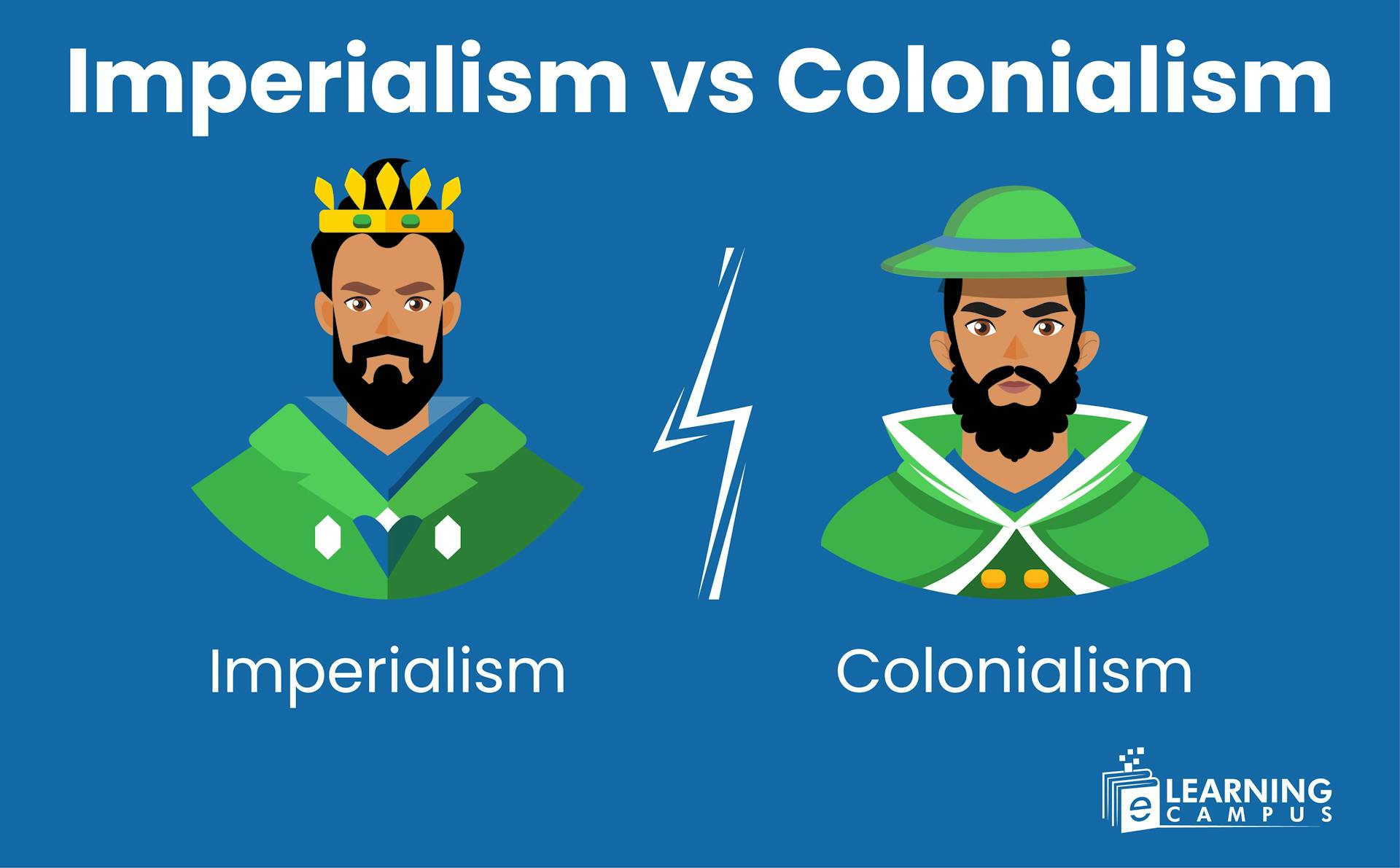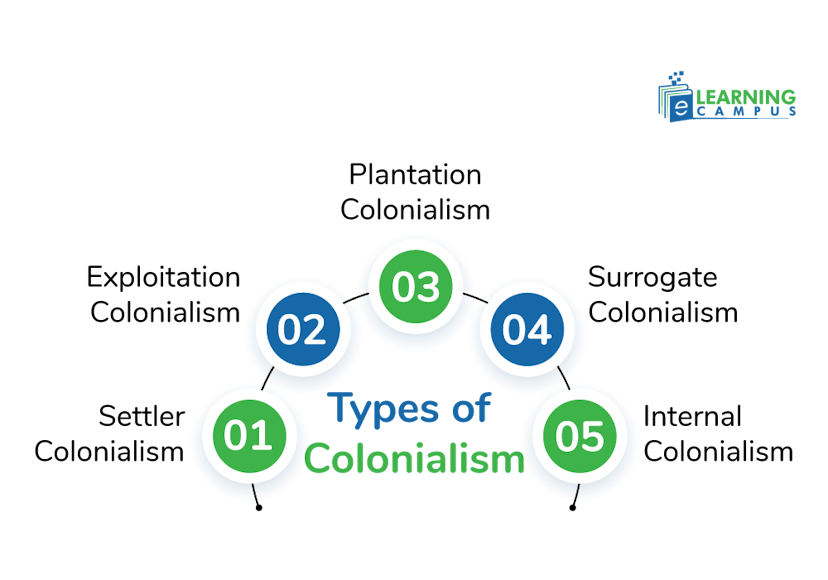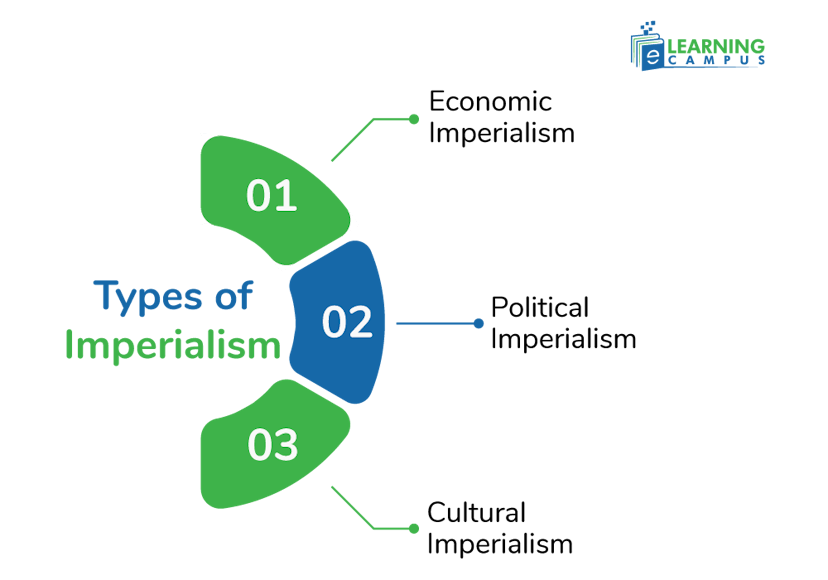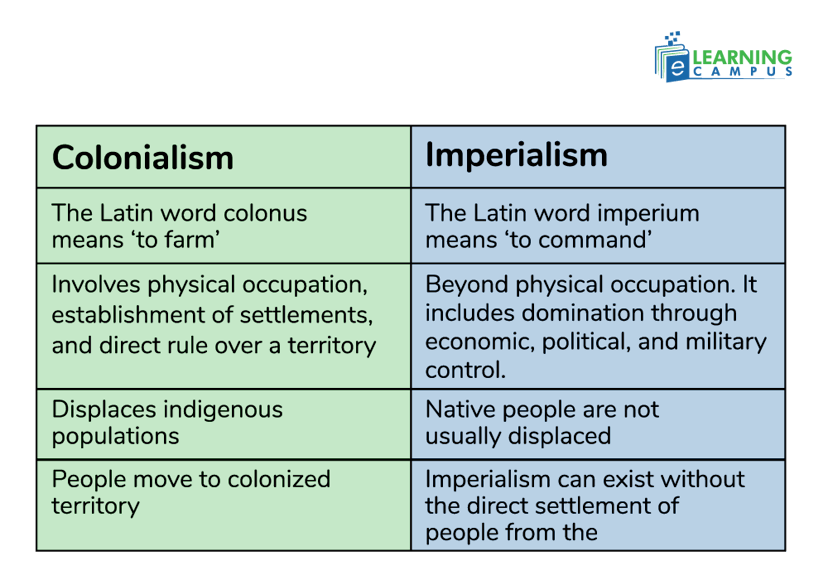Imperialism vs Colonialism- How They Differ

Imperialism and colonialism refer to the domination of one group by another through various means. Colonialism is the domination and exercise of power and influence over other nations by physical occupation and settlement. Imperialism is the domination of others through economic policies or political control without direct settlement and occupation.
In this blog, you will learn about colonialism and imperialism, their differences, and similarities. Let us start with understanding colonialism.
Colonialism
Colonialism is the practice in which one country establishes control over another territory and its people. It involves settlement, exploitation of resources, and imposition of one’s culture and governance.
It is a system in which a dominant power occupies the territory of less powerful people by force and exercises political, economic, and social rule over them. It results in the subjugation and exploitation of the indigenous population.
Types of Colonialism
Colonization is the act of occupying others’ territory. Colonialism is categorized into five types. These types are based on how colonization is carried out and the consequences for indigenous people.

Settler Colonialism
The settler colonialism involves the large-scale immigration of people from the colonizing power to settle in the colonized territory. The objectives of colonizers are to displace or replace the indigenous population and make permanent settlements. The British colonization of the United States is an example of settler colonialism.
Exploitation Colonialism
The exploitation colonialism is an act of dominance in which one country extracts resources and wealth from the colonized territory. The colonizers exploit the labour and natural resources for their benefit. It involves less emphasis on large-scale settlement.
Belgium’s colonization of Congo and Britain's colonization of India are examples of exploitation colonialism.
Plantation Colonialism
It is a type of colonization in which settlers establish large-scale agricultural operations. The colonizing power forced labor from the indigenous population for agricultural production. It also involves the imposition of one’s culture and religion on native people.
Surrogate Colonialism
Surrogate colonialism involves a project in which foreign powers support non indigenous people to settle in other territories. Support for surrogate colonialism may be in different forms, such as diplomacy, financial aid, or arms. The settlement of Jews in Palestine is an example of surrogate colonialism.
Internal Colonialism
Internal colonialism is a situation in which one ethnic or racial group within a country dominates another group. It refers to unequal distribution of power and resources within a nation, where one group dominates and exploits another.
Imperialism
Imperialism is an act of extending the influence and power of a state to another state without controlling the territories. It can be driven by a desire for resources, markets, strategic advantage, or a belief in cultural or racial superiority.
Types of Imperialism
Imperialism can manifest in various forms, such as economic imperialism, political imperialism, and cultural imperialism. We will discuss the types in detail.

Economic Imperialism
It is a type in which a powerful nation exerts economic control over another. The main objective behind this process is to benefit from the economy of the controlled country. It can be carried out through trade agreements, investment, or corporate dominance.
A dominant country influences the economy of a weak country without establishing formal political control. Examples include the influence of Europeans on African economies and the role of the East India Company.
Political Imperialism
In political imperialism, a country exerts influence over the political affairs of another country. It is carried out through military pressure, diplomatic maneuvering, or supporting political factions. In this process, a powerful country sets up its pro-government in the country.
Cultural Imperialism
Cultural imperialism is when a strong country dominates a weak country through its culture. A dominant country attempts to eradicate the beliefs, customs, religion, and language of the weaker country. The domination of Western culture is an example of cultural imperialism.
Difference Between Colonialism and Imperialism
Colonialism and imperialism are often used interchangeably. But there is a difference between these two terms. Imperialism is a concept or ideology, and colonialism is a practice. Imperialism and colonialism differ in many aspects.

Similarities Between Colonialism and Imperialism
Though two different approaches, colonialism and imperialism, share some similarities. These similarities are based on the goal and objectives of the process. The detailed explanation of the similarities between imperialism and colonialism is given below.
Domination and Control
The basic objective of both colonialism and imperialism is to exert control over another, either directly through physical presence or indirectly through political and economic influence.
Exploitation of Resources
A primary motivation for both is the exploitation of the resources of the dominated nation for their own benefit. It includes both human and natural resources. for the benefit of the dominant power.
Economic Gain
Both systems aim to extract economic benefits from other territories. It may be through trade imbalances, resource extraction, or forced labor.
Impact on Political Systems
Colonialism and imperialism impose political systems and institutions that favor dominant powers. It leads to authoritarian rule and suppression of local governance.
Cultural Influence
Both cause social and cultural infiltration. Powerful countries impose their culture, language, and values on the colonized population. These are one of the big causes of the suppression and marginalization of local cultures.
Conclusion
Imperialism and colonialism are related but distinct concepts. Colonialism is a practice of establishing and maintaining colonies that involve settlement and direct control over a territory. Imperialism is the policy of extending the power and influence of a nation through economic, political, and cultural dominance.
Prepare for Your Exam With Us
Are you stressed about your exams and don’t know how to prepare? We can help you. We have expert online tutors to help you achieve high scores on your exam. You will get targeted exam preparation for every subject.
